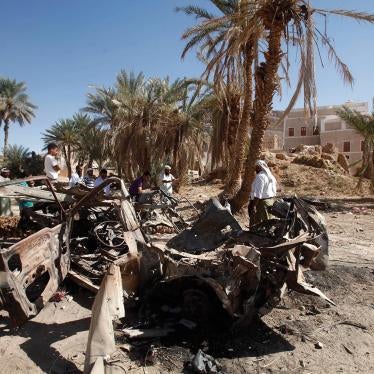MYTHS and complacency - when it comes to the Davao Death Squad (DDS) killings, that is what citizens of Davao City have been living with. But a decade and more than 800 unsolved murders later, can the authorities really deny that a death squad exists? A new report by Human Rights Watch, "You Can Die Any Time: Death Squad Killings in Mindanao" proves that a death squad exists in Davao City , and debunks the myths and justifications that local officials have relied on to avoid any serious investigation into the killings.
Myth No.1
The killings are randomly committed by gang members.
According to the insiders Human Rights Watch interviewed, some local police and barangay (village or district) officials are involved or complicit in death squad operations. The death squad is organized by handlers, called amo (boss), who are usually current or former police officers. They provide DDS members with training, weapons and ammunition, motorcycles, and information on the targets. They pay the killers between 5,000 and 50,000 pesos per killing.
Various other clues indicate that these are not gang killings. First, victims often receive warnings from local officials before they are killed. Second, death squad members often use .45-caliber handguns, a weapon commonly used by the police but prohibitively expensive for gang members and common criminals. Third, the police are almost always absent when the killings occur, often in broad daylight in crowded places, sometimes in the vicinity of a police station, and they are slow to arrive at the crime scene.
Myth No.2
The victims are all criminals.
First of all, as everyone should be presumed innocent until proven guilty, they cannot be labeled criminals unless they are found guilty in a court of law after a fair trial. Even if they were found guilty, executions cannot be justified since the Philippines abolished the death penalty in 2006. In other words, victims have been summarily executed based on mere suspicion that they have committed a crime, without a chance to defend themselves in court.
Besides, according to our own research, as well as local activists and journalists who have been documenting the killings, a growing number of victims are apparently unintended targets â€" people who were mistaken for others, family members and friends of the intended targets, and people who were simply at the wrong place at the wrong time. Some activists in Davao City also expressed concern to Human Rights Watch that, alarmingly, some members of the DDS have become guns for hire. If true, this means that anyone who can afford to pay a few hundred dollars can have an enemy murdered.
Myth No.3
Davao City is safer with the DDS stalking criminals.
When we consider the issue of crime in Davao City , let's not forget the DDS victims hundreds of adults and children have been murdered without anyone answering for such crimes. These killings have bred a culture of violence and impunity. In fact the crime statistics of Davao City in the past decade show an explosion of crime. Between 1999 and 2008, the number of annual crime incidents rose by 248 percent, while the size of the population grew only by 29 percent.
Myth No.4
The old killings remain unsolved while news ones continue to occur, because of a lack of cooperation by witnesses and families of victims.
While it helps the police if witnesses and the victim's families come forward, it is in fact the job of the police's and nobody else - to find and arrest suspects. Indeed, many witnesses have told Human Rights Watch that the police routinely arrived at the scene of a killing long after the assailants left, even if the nearest police station was minutes away. They said the police failed to collect obvious evidence such as spent bullet casings, or to question witnesses or suspects, and instead pressured the families of victims to tell them who the killers were. The police also failed to inform the families of victims of any progress in their investigation. With the police performing a perfunctory investigation at best, and families and witnesses understandably afraid of reprisals by the killers, there aren't many incentives for them to come forward, even if they had information to offer.
Myth No.5
Mayor Rodrigo Duterte deserves credit for keeping Davao City safe from criminals.
Mayor Duterte has earned many flashy nicknames for his tough anti-crime approach, including "Dirty Harry," "The Punisher" and "The Enforcer." He has consistently denied the existence of a death squad in Davao City , while making numerous statements justifying the murder of "criminals." But is he really making the city safer? The worsening crime statistics are evidence that he is not. Furthermore, if Duterte wants to build a safer city where citizens respect the rule of law and due process, he should stop making statements that undermine that respect by insinuating that it is acceptable to summarily execute suspected criminals.
Davao citizens should recognize these myths for what they really are and demand that Mayor Duterte stop justifying murders that go unpunished under his watch. Davao City will not be a safer place for anyone until the Davao Death Squad is dismantled, and the killers and their handlers are brought to justice.
Kay Seok is Asia researcher at Human Rights Watch, and author of the report "You Can Die Any Time: Death Squad Killings in Mindanao ." The report can be found at www.hrw.org/en/asia.






